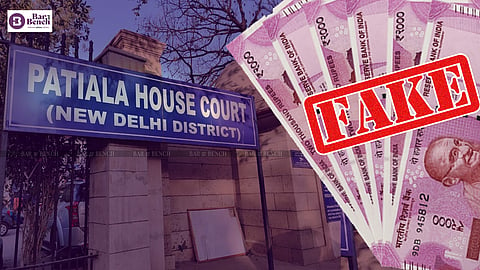
- News
- Columns
- Interviews
- Law Firms
- Apprentice Lawyer
- Legal Jobs
- हिंदी
- ಕನ್ನಡ

A convict can’t claim preferential treatment on account of her gender, a Delhi Court observed while awarding a five-year jail term to a 40-year-old woman and her accomplice for dealing in fake Indian currency notes (FICN) in 2016.